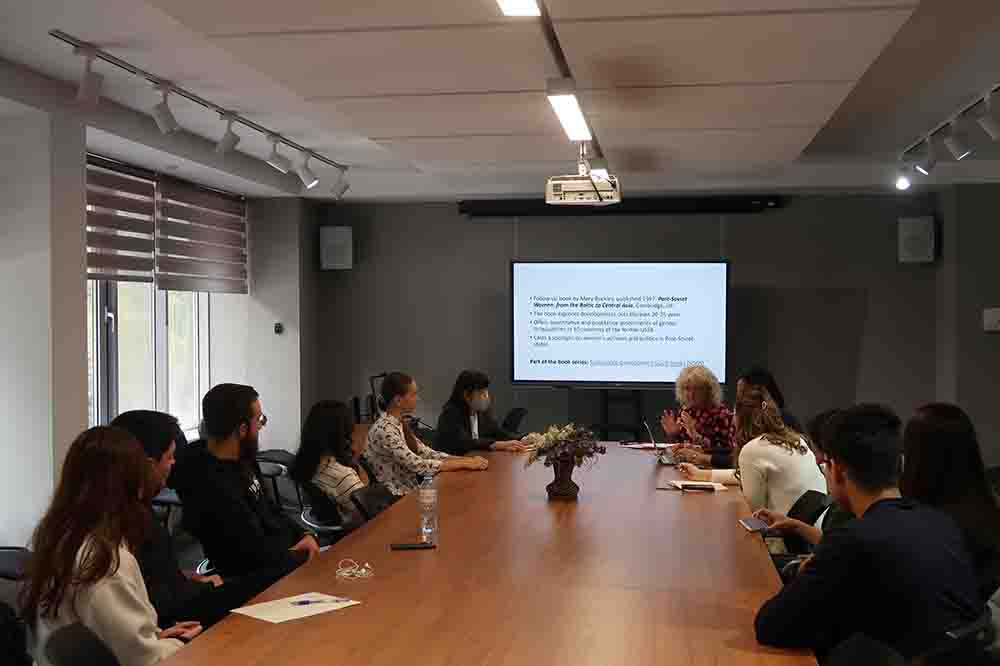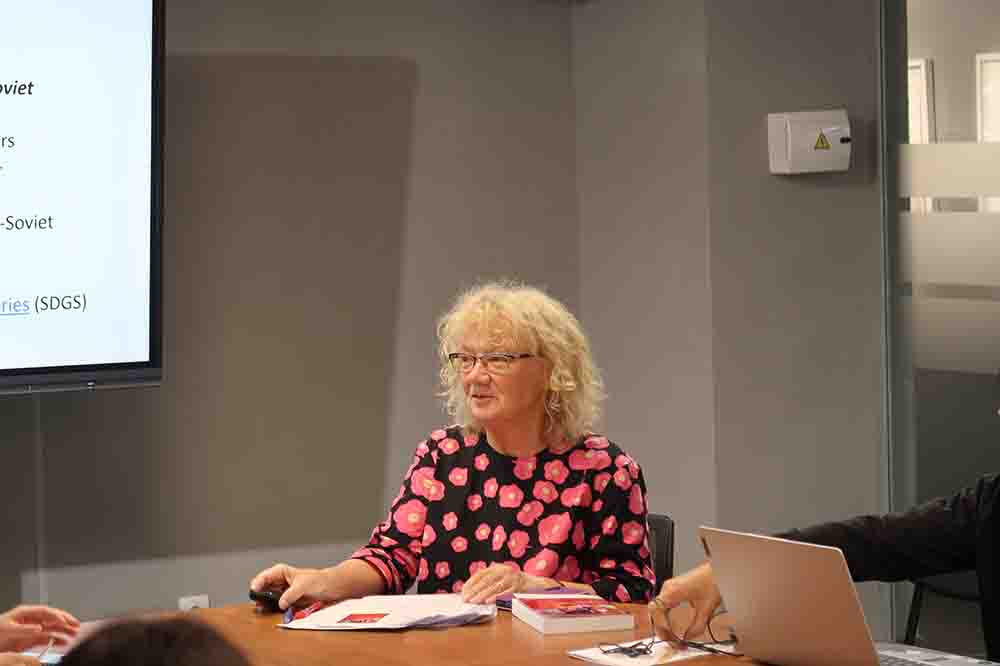The Post-Soviet woman still faces numerous challenges to find gender equality, a group of authors said during a discussion of their book at KIMEP University on Sept. 27.
The authors presented and discussed their contributions to the new book “Post-Soviet Women: New Challenges and Ways to Empowerment.”
“This project took a few years to complete,” Prof. Ann-Mari Sätre from Uppsala University, and editor of the book, “It began after I read Mary Buckley’s work, which examined the situation of post-Soviet women from the Baltics to Central Asia. I thought it would be interesting to follow up on the past 25 years to see what has changed.
“Additionally, we noticed conservative trends in Post Soviet countries, which further motivated us to explore these developments,” she said.
Contributors from across post-Soviet countries were involved in the creation of the book.
Galym Jusipbek, a researcher based in Almaty and professor at Suleyman Demirel University, along with his colleague Zhanar Nagayeva, co-authored a chapter that focuses on the status of women in Kazakhstan and Kyrgyzstan. Their chapter examined gender inequality, particularly within the frameworks of conservative retraditionalization and neoliberal capitalism.
KIMEP University’s professor Alma Kudebayeva also contributed to the book with a chapter titled General Trends in Gender Inequality in Post-Soviet Central Asia. Her research analyzed the current gender dynamics in Central Asian countries, comparing various gender inequality indices and measuring differences in subjective well-being between men and women.
The book is divided into three parts to reflect the three key steps for women’s empowerment.
“First, a woman needs a platform—whether in politics, the labor market, or civil society. Having a position in society is essential for empowerment,” Sätre said.
The second part focuses on the space for agency, emphasizing that women must find ways to navigate within the existing system to gain empowerment, even if structural changes are not immediately possible.
“This part addresses how women cope within their country’s given frameworks,” Sätre added.
The third part of the book discusses possibilities for women’s empowerment in Post-Soviet countries.
The audience seemed interested in gender inequality in Kazakhstan, especially regarding how traditional values continue to limit women’s autonomy.
“A common issue for all post-Soviet women is the inability to make independent decisions about their lives,” Jusipbek said. “Society imposes certain expectations on them, and these must be addressed. We cannot only look at this through political or traditional lenses; we need to conceptually analyze the entire issue.”
During the Q&A session, participants asked how education can be used to address gender inequality, and the role of the police in post-colonial European contexts was compared to that in post-Soviet states.

The authors emphasized that this book is just the starting point for more research. They expressed confidence that these studies will continue to expand.
A central concept was the “equal moral dignity of a person,” which emphasizes universal human dignity across cultures and societies, the authors said.
They proposed protecting and developing individual rights within local social contexts, reinterpreting traditions and religious values to move away from colonial approaches. Additionally, they encouraged exploring alternatives to capitalist models, with a focus on inclusive development that considers economic, social, gender, and ecological factors.

